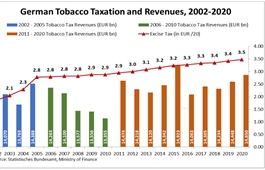Blockchain technology to revolutionise finance and banking sector
Blockchain technology to revolutionise finance and banking sector
Blockchain technology is expected to help Vietnam's finance and banking sector deliver a better customer experience and help traditional banking institutions compete with fintech startups.
On October 26, the Vietnam Blockchain Association cooperated with the Vietnam Banks Association to co-organise a workshop on Blockchain technology in the financial sector: Opportunities and Challenges.
Representatives of the Vietnam Banks Association and Vietnam Blockchain Association signing the agreement
The two associations have also signed a cooperation agreement to support each other in research and advice on blockchain applications in the financial industry, contributing to propagating correct information about blockchain and proposing recommendations to government agencies.
They will consult together to complete the legal policy framework for the technology sector in Vietnam, expand relationships with organisations and blockchain technology communities around the world, and share experiences and assets to research and develop human resources for the digital economy.
Representatives of leading banks in Vietnam such as HSBC, Vietcombank, and TPBank shared their experiences and blockchain application roadmap in banking operations, especially in LC transactions and interbank money transfers, which significantly saves processing time.
Nguyen Quoc Hung, general secretary of the Vietnam Banks Association said, “Vietnam boats huge potential for blockchain development despite facing many challenges such as a lack of blockchain experts, practical applications, and a legal framework. However, the key benefits of blockchain are undeniable.”
According to experts from the association, blockchain will help banks quickly transfer money internationally. Currently, when transferring money from one country to another, transactions can take days and involve many third parties. Some banks are considering reducing this kind of transaction due to the many procedures in the processing stage. Blockchain enables faster, simpler, and more efficient peer-to-peer transactions for both businesses and international consumers.
The blockchain network is maintained by thousands of computers, which enhances security and reduces fraud. In the context of rampant cybercrime or widespread ransomware attacks, this approach can protect confidential or sensitive information and avoid hundreds of thousands of dollars in damages for victims.
The global blockchain market size for banking and financial services is expected to grow from $1.17 billion in 2021 to $1.89 billion in 2022 at a compound annual growth rate of 61.9 per cent, according to ReportLinker statistics.
Blockchain also helps to significantly reduce the cost of banking services and improve product quality. Some tasks can be automated using blockchain, such as making payments and issuing loans.
In addition, this new technology helps to reduce human error and speed up the peer-to-peer lending process, reducing the time it takes to open a bank account from a few days to a few minutes.
Phan Duc Trung, permanent vice president of the Vietnam Blockchain Association said, “I hope that through today’s workshop, we can see the positive and negative aspects of technology to bring blockchain to life and solve business problems.”
North America was the largest region in the blockchain finance-banking market in 2021 but Asia-Pacific is expected to be the fastest-growing region in the forecast period. Major companies are applying blockchain to financial and banking activities, including Amazon Web Services, Microsoft, IBM, Intel, JPMorgan, ConsenSys, R3, Oracle, and more.
























